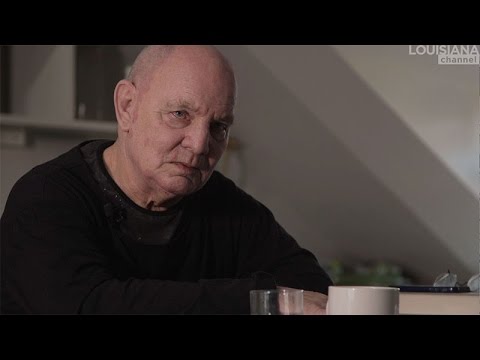
The unsurpassed Swedish playwright Lars Norén grew up in a home that felt “radically unsafe.” In this rare interview he traces his writing back to his childhood experiences: “I’ll say as Balzac, that they could’ve locked me in the basement at age 11 because I had so much material.”
The aspiration to fail is one of Norén’s driving forces when it comes to writing. He does not want to simply write the things he knows how to write but rather to seek out the unknown: “Failure, failure, failure. That’s what it’s all about. To find a way out of what I already know.” Moreover, it is his conviction that art should not necessarily be understood immediately but rather detonated after a while — like an underwater bomb.
Norén’s youth was spent in Skåne, Sweden where his family managed a provincial hotel. Though it was full of classical music and great literature it was not a happy childhood and Norén ended up running away from home at the age of 15. When his mother died, he was admitted to a psychiatric clinic, where he underwent drug and electroconvulsive therapy for endogenous depression and schizophrenia. These experiences, combined with classical psychoanalysis through 18 years, formed his life and not least his writings in which he investigates his memories and how to deal with these: “Art is always an echo of something.”
However, Norén feels that art does not only deal with the artist’s personal memory but also reflects society and its wounds. He contemplates Auschwitz and not least Italian writer Primo Levi’s account of life in the concentration camp, considering it to be a crucial point of reference in his oeuvre.
Lars Norén (b. 1944 – d.2021) was a Swedish playwright, novelist and poet, regarded by many as the greatest Swedish playwright since August Strindberg. His plays often revolve around dysfunctional families and the people situated at the bottom of society. Among his many works are ‘Night is Mother to the Day’ (1982) and ‘7:3’ (1999). In 2003, Norén received the Swedish Academy Nordic Prize, known as the “little Nobel.”
Lars Norén was interviewed by Christian Lund in Stockholm in February 2015.
Camera: Kasper Kiertzner
Edited by: Kamilla Bruus
Produced by: Christian Lund
Copyright: Louisiana Channel, Louisiana Museum of Modern Art, 2015
Supported by Nordea-fonden
source